How much deep sleep do you need and 9 ways to get more of it as a new parent
How much deep sleep do you need is a question asked by parents everywhere, especially when your baby is keeping you up at night...
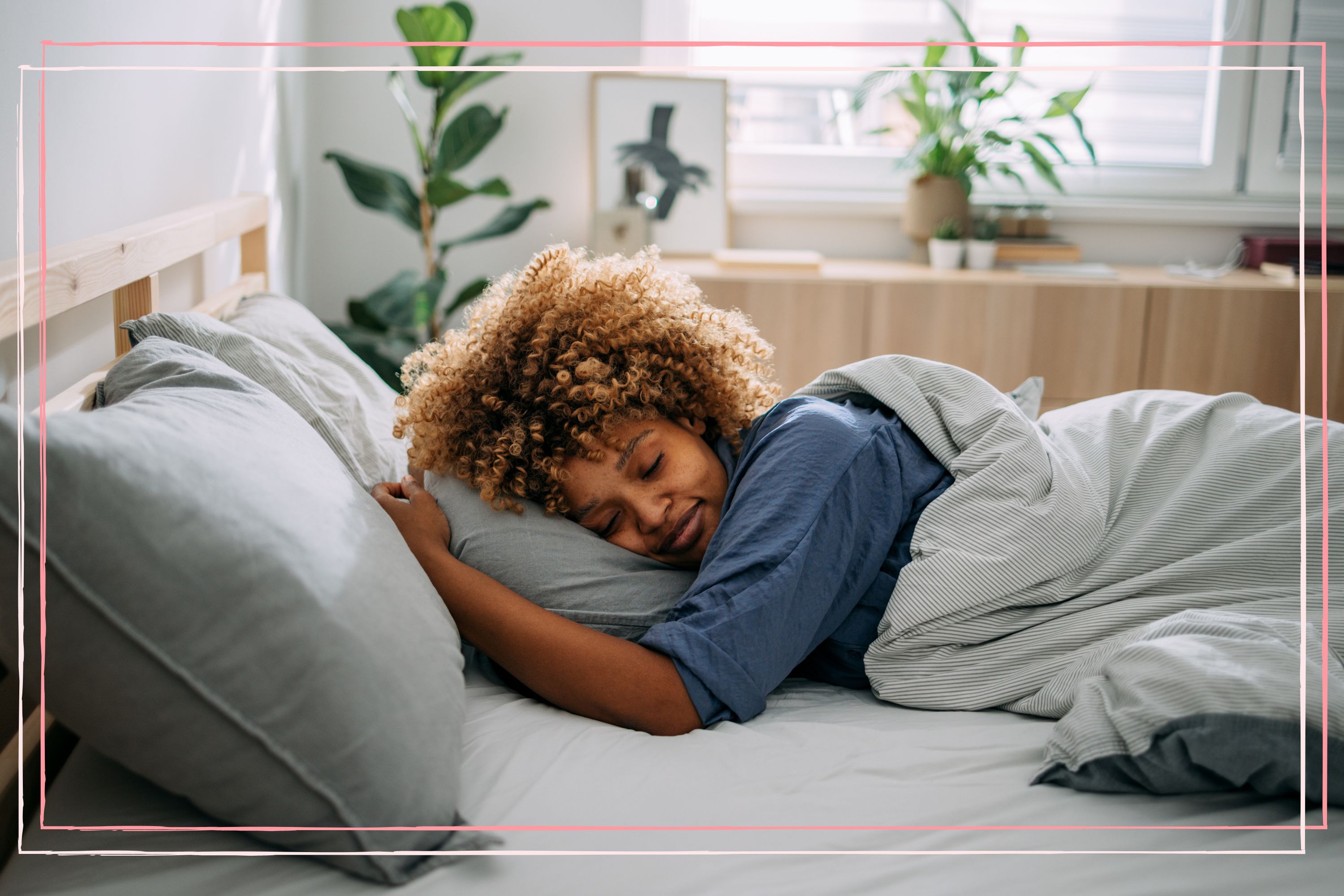

It’s the most important stage of sleep that we go through each night, but how much deep sleep do you need?
If you're a new parent, you may well feel like you've sacrificed your own deep sleep for the needs of your baby, spending more time and energy on researching the best cot mattresses and baby monitors to help get your baby to sleep, instead of getting enough sleep yourself. But deep sleep is important for parents too, and dealing with a lack of sleep can have serious health implications.
"Everyone is different when it comes to working out how much deep sleep we need, but a good eternal rule is that about 20% of your total sleep time should be made up of deep sleep." says James Wilson, a sleep behaviour and environment expert known as The Sleep Geek. We've asked him and other sleep experts to share their knowledge and top tips on how to get more deep sleep as a new parent.

As The Sleep Geek, James has a passion to help the world sleep better through individuals understanding their sleep and implementing changes to their behaviours, environment, and mindset. He also advocates for poor sleepers, regularly appearing on TV and radio, and has been featured in newspapers, magazines, and digital platforms around the world.
What is deep sleep?
Deep Sleep is a period of sleep that takes place before dreaming. It is called deep sleep because this is when we are least likely to wake up early and are often enjoying our deepest slumber.
"Deep Sleep is a stage of sleep that we move into after about 20-25 minutes of falling asleep, and it is very important to our physical recovery," says Sleep Geek James. "It is when growth hormone is released and where our organs, muscles and cells repair," he adds, "and it’s where the process of consolidating memory starts and where our body releases chemicals that boost your immune system." This restorative process that takes place during deep sleep is often what makes us feel like we’ve had a good night’s rest in the morning.
Dr Deborah Lee from Dr Fox Online Pharmacy further explains: "When in deep sleep the person is deeply relaxed. With no muscular activity, the heart rate slows and the blood pressure falls. It’s hard to wake someone from deep sleep and if you do, they often feel groggy and tired."
She adds, "Deep sleep is vital for all human health – for babies, infants, children and adults." A lack of sleep can affect the body very seriously, leaving you wondering why you’re tired all the time and how to wake up properly in the morning.
GoodtoKnow Newsletter
Parenting advice, hot topics, best buys and family finance tips delivered straight to your inbox.

Having worked for many years in the NHS, mostly as Lead Clinician within an integrated Community Sexual Health Service, Dr Deborah Lee now works as a health and medical writer, with an emphasis on women's health, including medical content for Dr Fox pharmacy. She has published several books and remains passionate about all aspects of medicine and sexual health.
How much deep sleep do you need?
"It is advisable for an adult to get 1 to 3 hours of deep sleep per 8 hours of nightly sleep each night," says Sleep Geek James. This amount is key to feeling rested, staying healthy and waking up happy.
The NHS recommends adults aim for about 7-9 hours sleep a night and, based on this, James encourages just over 90 minutes of slow wave sleep everyday. Meanwhile, teenagers, children and babies need more sleep because they are still growing, and this can vary depending on health and personal circumstances. They add that a newborn can sleep anywhere between 8 to 16 hours.
Dr Deborah Lee explains that newborn babies spend about half their time when asleep in deep sleep. She adds: "Babies have very pronounced Circadian rhythms, so you cannot change this 'natural body clock’ – however tired a parent you are! It will eventually sort itself out, so they do not wake up and sleep through the night - but you need to work with it - not fight against it."
A post shared by Sleep Health (@sleephealthfoundation)
A photo posted by on
With that in mind, if you're a new parent struggling to get the seven hours in around caring for your baby, you're not alone. The team of experts at Your Baby Club explain, "New parents getting to grips with the new routines and processes of caring for an infant may feel like they need to use the hours their baby is asleep to carry out household tasks and life admin, such as cleaning, cooking or organising paperwork. However, the amount of sleep we get can have a big impact on the body and how we feel both physically and emotionally, so it should be the priority."
They say that new parents should therefore try to get at least four hours of uninterrupted sleep every 24 hours, as it can help to boost well-being as well as postpartum mood disorders.
How to get more deep sleep as a new parent
1. Take turns getting up in the night
If you live with a partner who is capable of sharing the workload involved in looking after your baby, taking turns to get up in the night when needed means you can get at least some uninterrupted sleep. Sometimes the best help is right in front of you, and can make a huge difference.
Your Baby Club advises, "If you are a new parent who nurses, try going to bed as soon after your newborn as possible and see if your partner can bottle feed your baby using expressed breast milk or formula during the first portion of the night, so you can secure a solid chunk of deep sleep before they wake up again."
With that said, taking turns isn't always an easy subject to broach. Goodto.com family editor, Stephanie Lowe is a mum-of-one and admits she struggled to let her husband help at night. "We tried taking it in turns, but I was awake when the baby woke anyway, whether it was my turn or not. It was better not having to get out of bed but I still woke up every time."
Meanwhile, mum-of-twins Ash tells us how she and her partner would take turns sleeping in the spare room, to really limit interruptions. "My partner and I decided there was no point in both of us being tired beyond reproach so we took it in turns, not every night, every three nights one would be on baby duty the other would pick up the slack in the day. But we were lucky my partner got 3 months paternity leave."
2. Embrace napping
We know sleeping when you're baby sleeps isn't always an option, but it is one way that parents can increase the amount of deep sleep that they get.
Dr Lee says that napping can help you feel refreshed, but adds, "Don’t sleep for more than 30 minutes, as after this you run the risk you’ve entered deep sleep, and when you wake up you will feel groggy."
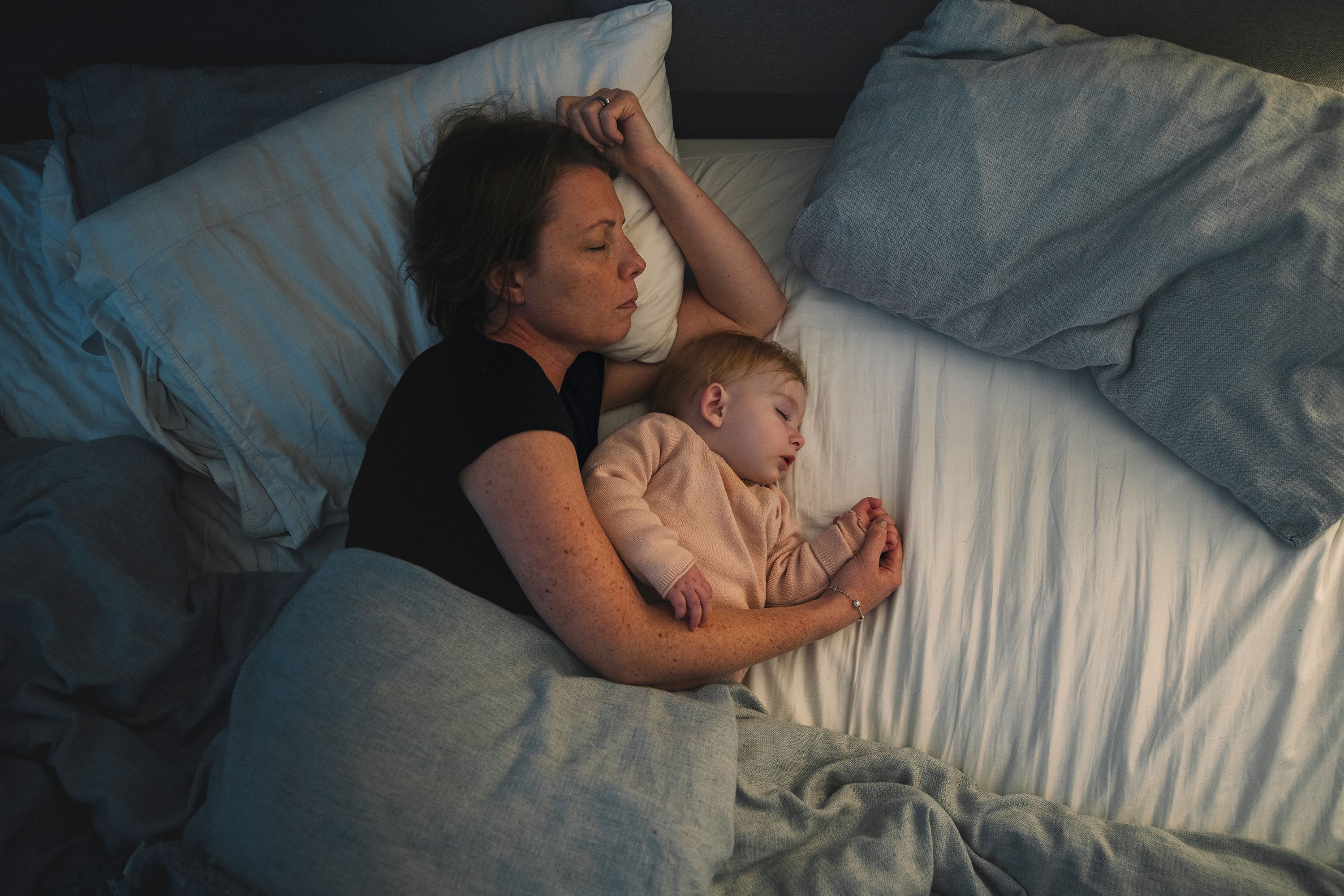
Meanwhile, according to Sleep Foundation, napping later in the day can have a negative effect on the amount of deep sleep you will get.
They say: "If you nap in the morning, the sleep consists primarily of light non-rapid eye movement (and possibly REM) sleep. In contrast, napping later in the evening, as your sleep drive increases, will comprise more deep sleep. This may disrupt your ability to fall asleep at night. Therefore, napping late in the day is discouraged."
They add that around 10 minutes is considered the best nap duration, because it allows you to catch a quick rest without entering slow-wave sleep. So, a short nap while your baby is sleeping earlier in the day could be key to helping you shake off some tiredness.
3. Ignore the housework
And if you want to make the most of getting naps in, you're going to have to put some of the household tasks on the back burner - and that's ok.
Dr Deborah Lee says, "In the early days, be kind to yourself. Those household chores can wait. When your baby sleeps, you take the opportunity to sleep too. The more sleep you have, the more frequent and longer episodes of deep sleep will occur."
The experts at Your Baby Club add: "While napping during the day may feel like a challenge due to the many household chores that are mounting up, taking just 20 minutes of extra sleep during the day can help you recharge and reduce feelings of stress."
4. Get some sunshine in the day
Getting plenty of sunlight can improve your sleep because it affects your circadian rhythm - an internally driven 24-hour cycle that helps to set your sleep/wake cycle. A study published by the Centers for Disease Control and Prevention found that when you get bright light in the morning it can help you feel more alert during the day, while also having a later effect that helps you to fall asleep faster in the evening.
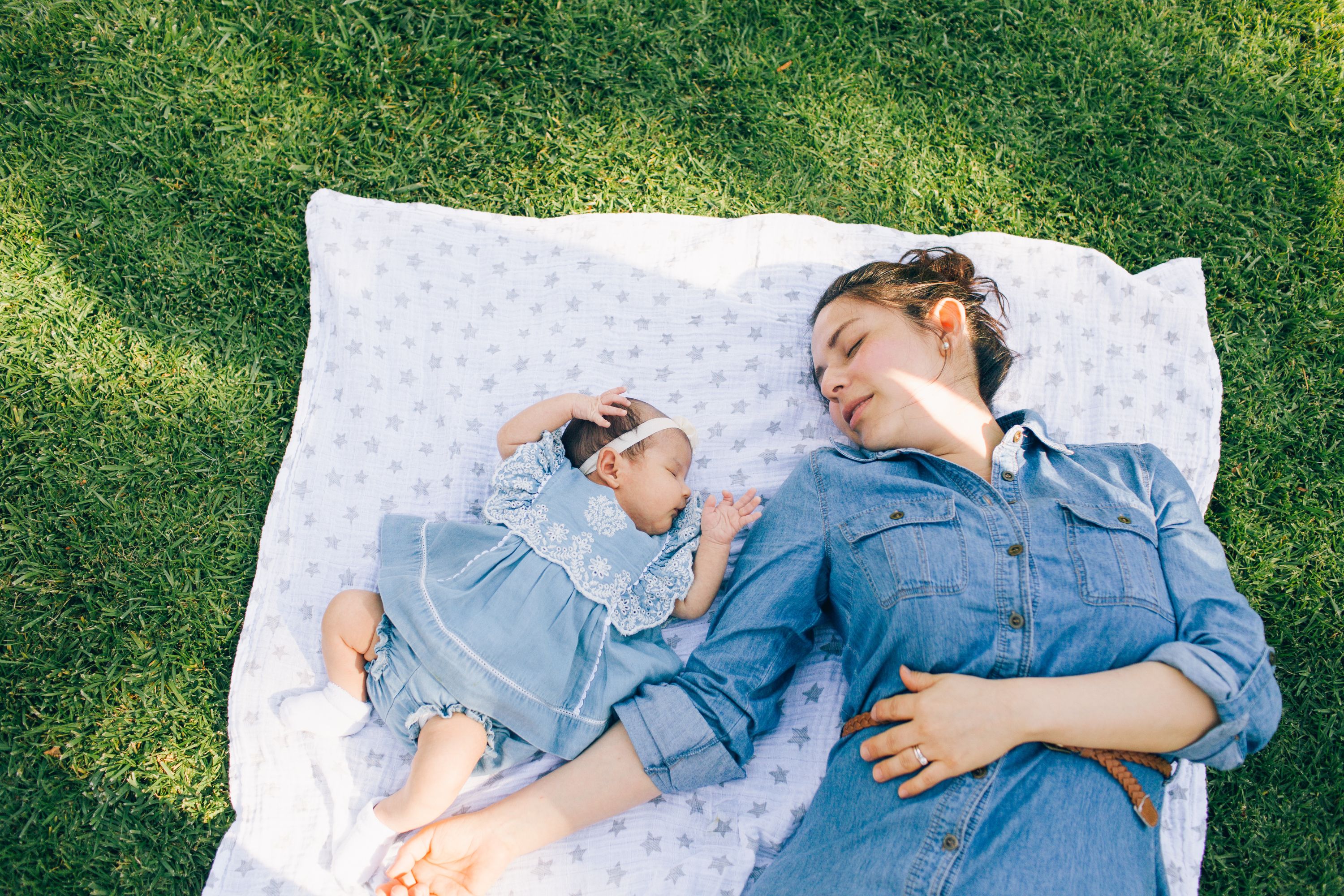
Sam Lewtas, founder of circadian lighting company Circada, says: "A tip to help both baby and parent sleep is to get some sunlight during the day and less light at night. "
He adds, "It takes around 3 months for a newborn’s body clock to stabilise, but by getting out and about (mid-late morning is best) you can do your bit to help, taking any precautions of course for the weather. Similarly, ensuring a dark room to sleep in and avoiding bright lights when tending to the little one at night can help everyone sleep a little sounder."
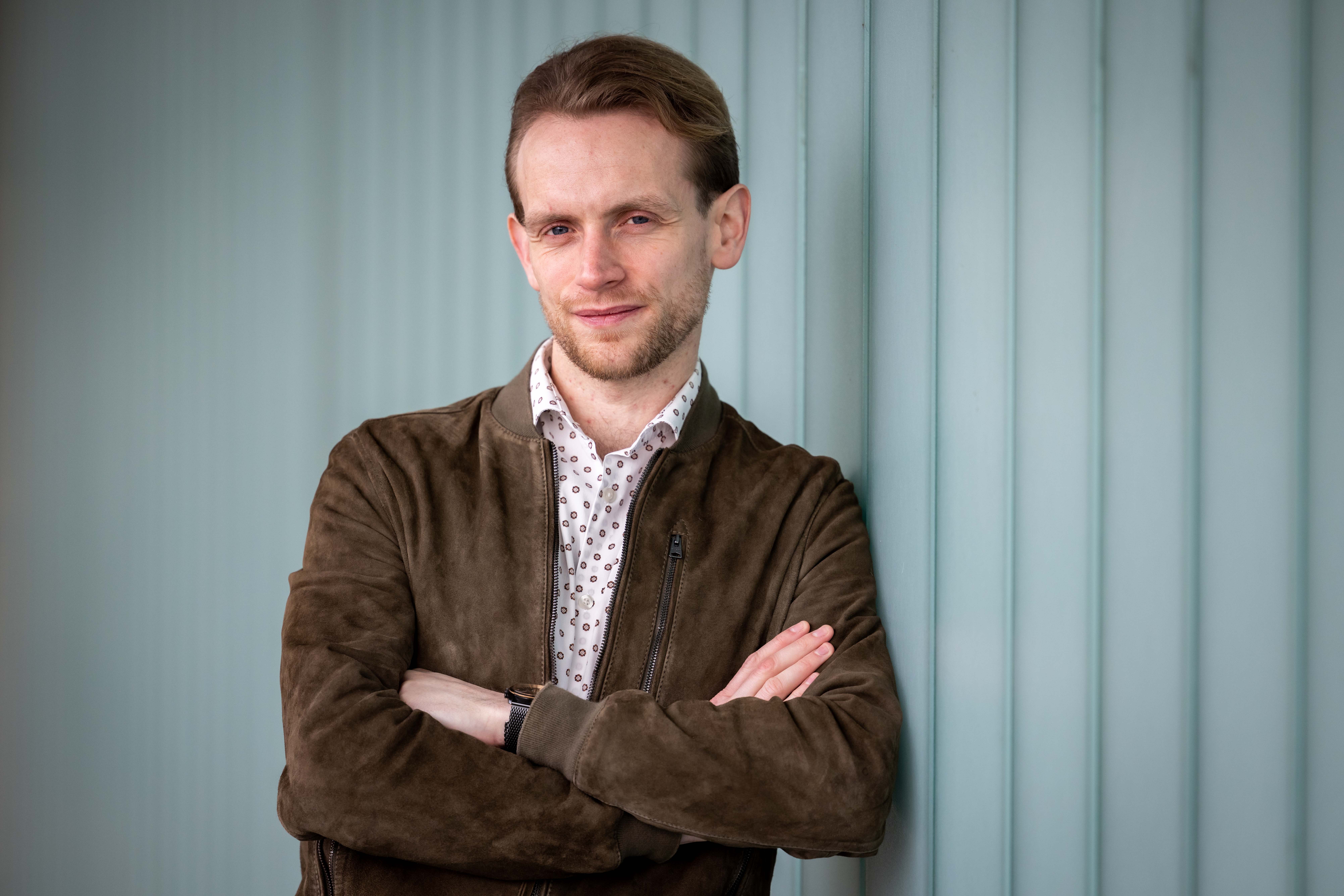
Whilst studying Pharmacy at Bath University, Sam Lewtas noticed that pulling all-nighters was starting to take its toll. As a sufferer of Seasonal Affective Disorder (SAD), he came to realise the effect that light, and retuning our body clocks to their natural rhythm, can have on our health and wellbeing.
This inspired Sam to conduct his own research into circadian lighting and its effect on the body. He was shocked to learn that circadian lighting helps to balance the activation of serotonin circuits in your brain, which contributes to everyday bodily functions, such as mood regulation, sleep patterns and alertness. This research inspired him to set up Circada.
5. Avoid eating too close to bedtime
"Eating too close to bedtime raises our core temperature and can impact the quality of our sleep," says Sleep Geek James. He suggests avoiding certain foods before bed and opting for a low-carbohydrate diet, as a study from the University of Sydney found that the low-carb diet known as the Ketogenic diet actually increased slow wave sleep in participants monitored.
Some examples of foods to avoid before bed include:
- Spicy foods
- Chocolate
- Cheese
- Alcoholic beverages (try one of the best non-alcoholic wines instead)
Of course, when you're spending all evening looking after your baby, it's not always easy to eat your last meal earlier in the day. Check out our list of expert-approved foods for sleep to get some dinner inspiration.
6. Establish a bedtime routine
Establishing a bedtime routine for both your baby and yourself can be crucial to achieving more deep sleep. Dr Lee advises, "As your baby gets older, try and stick to an evening ritual. For example, after the 6pm feed, a warm bath can become a signal to your baby that bedtime is near."
She adds that toddlers and small children will benefit from one-on-one time with a parent before bed, such as sitting and reading a story together. Sticking to such a routine will help you, as a parent, wind down before bed too.
And try to go to bed at the same time every night, as Your Baby Club says, "Establishing this kind of routine helps the body wind down for the night and prepares it for sleep, meaning you are more likely to enjoy undisturbed deep sleep, at least during the first part of the night."
7. Try a hot bath before bed
Once baby's gone down, take the opportunity to do something for yourself. Taking a bath is not only a relaxing activity at the end of a long day, it could also help you get better sleep at night.
"Winding down properly before bed, focusing on activities that drop our heart rate and allow us to relax helps," says James."As does having a warm bath or shower to drop our core temperature and make us cooler."
A report published in Sleep Medicine Reviews found that having a 40 to 43°C bath one to two hours before bed helped participants get the best quality sleep, and also found that bathing at that time and temperature helped people fall asleep an average of 10 minutes quicker than normal.
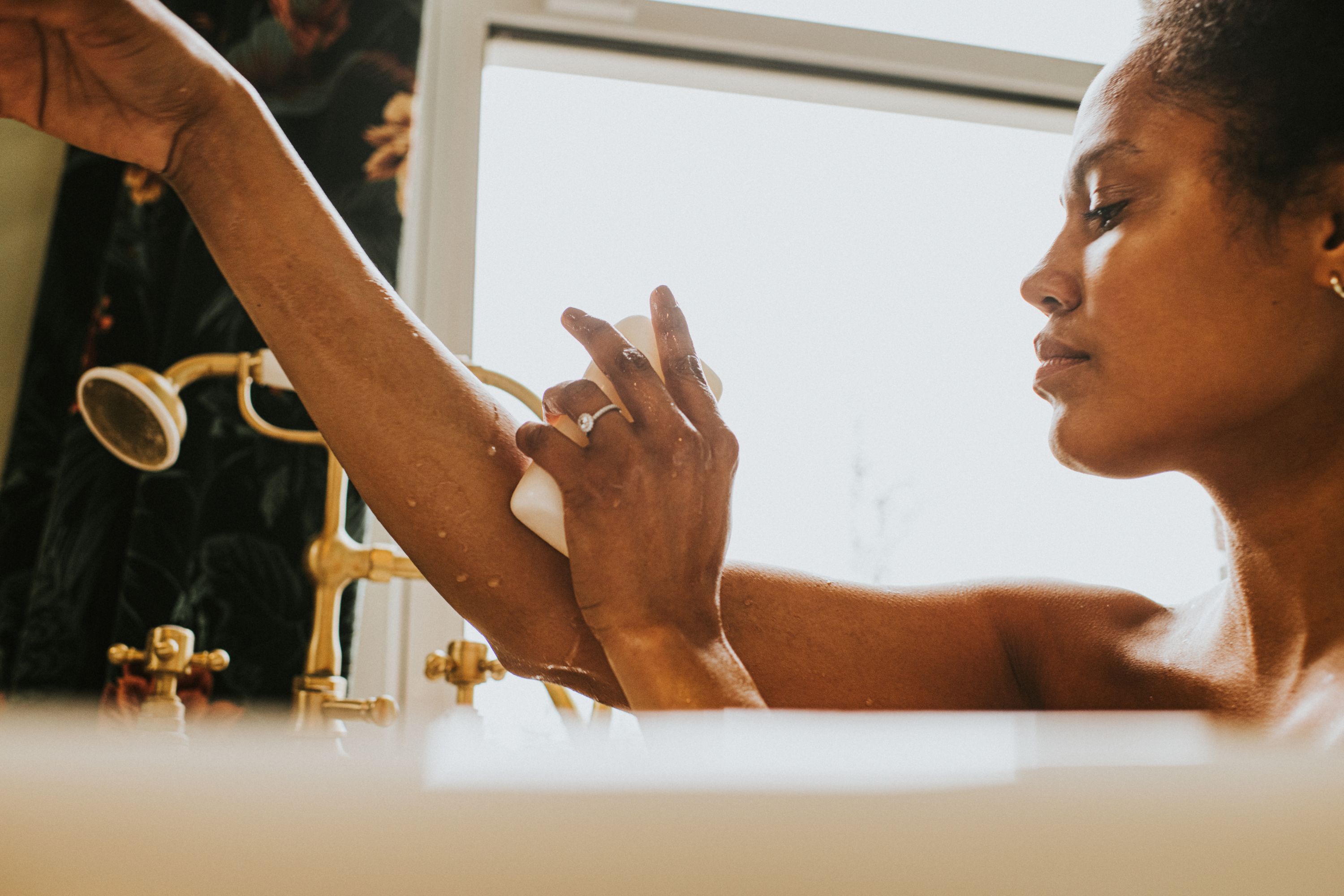
8. Exercise in the evening
Exercise isn't expected - keeping a baby alive all day is hard enough work as it is without adding Burpees to it - but a study from the University of South Carolina found that survey respondents who exercised after 8pm fell asleep more quickly (65%), had deeper sleep (62%), and woke up feeling better (60%). In another study, published in Scientific Reports, it was also found that exercise improves the quality of slow wave sleep, so consider switching your morning workout to later in the day, if you can.
Of course, if you've got a baby to look after then exercise might be far from your mind - but the movement doesn't need to be strenuous. See if your partner can take care of the baby while you do some stretching or yoga, try a short home workout or even take a brisk walk around the block.
9. Ask for help
Finally, if you are struggling to increase and upkeep the amount of deep sleep you are getting as a new parent, make sure to reach out for help from family and friends when you need it - there is no shame in doing so!
Your Baby Club says, "Asking loved ones to care for your baby just for one night or even a couple of hours so you can catch up on deep sleep loss can increase the amount of energy you have to care for your baby."
Meanwhile, Dr Lee adds: "As the days go by, take as much help as you can get. If you have a partner, parent or friend who can do a feed for you, you can get a longer sleep of maybe 4 or 5 hours duration."
She adds, "If you are experiencing serious insomnia, and just cannot sleep, even when you have the option to sleep, this could be a feature of the baby blues, or postpartum depression. Don’t leave it - talk to your midwife, or see your GP."
Looking for more ways to improve your quality of sleep? Check out these 15 ways to fall asleep fast, this list of the best foods for sleep, or find out what sleeping position is best for you. You might also want to know why you keep waking up early, or even find out about sleep affirmations and if they can work.
Video of the Week

Ellie is GoodtoKnow’s Family News Editor and covers all the latest trends in the parenting world - from relationship advice and baby names to wellbeing and self-care ideas for busy mums. Ellie is also an NCTJ-qualified journalist and has a distinction in MA Magazine Journalism from Nottingham Trent University and a first-class degree in Journalism from Cardiff University. Previously, Ellie has worked with BBC Good Food, The Big Issue, and the Nottingham Post, as well as freelancing as an arts and entertainment writer alongside her studies. When she’s not got her nose in a book, you’ll probably find Ellie jogging around her local park, indulging in an insta-worthy restaurant, or watching Netflix’s newest true crime documentary.
-
 Sorry, parents - you might have 18 years of sleep deprivation ahead of you, as a new survey shows teens disrupt sleep just as much as toddlers do
Sorry, parents - you might have 18 years of sleep deprivation ahead of you, as a new survey shows teens disrupt sleep just as much as toddlers doA new survey has revealed that teens disrupt their parents' sleep just as much as toddlers do (and, sorry, it gets worse the more children you have).
By Ellie Hutchings Published
-
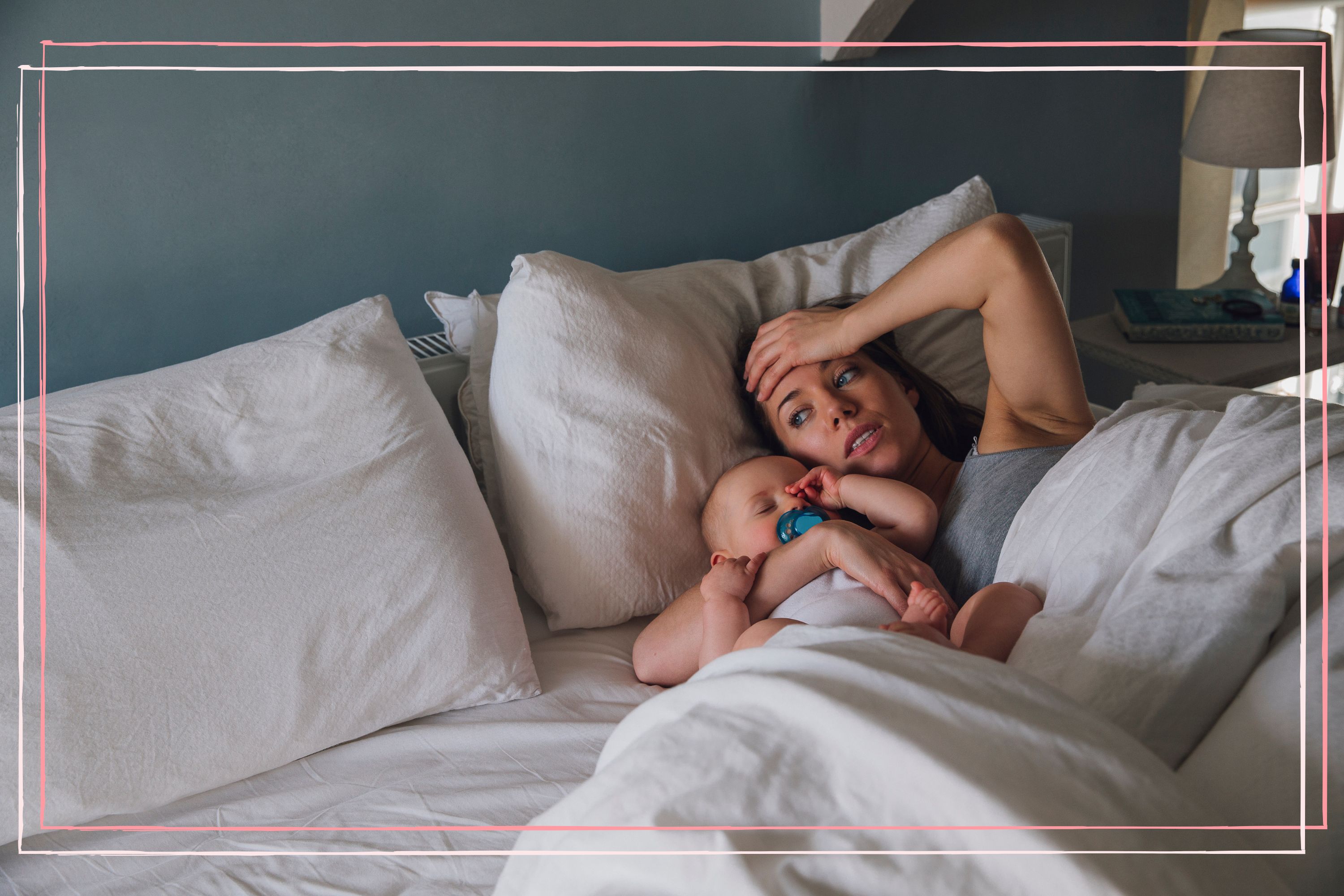 How to deal with lack of sleep as a new parent: 10 tips to help you survive when your newborn needs you through the night
How to deal with lack of sleep as a new parent: 10 tips to help you survive when your newborn needs you through the nightWe've asked the experts for their ideas on battling exhaustion if you're dealing with lack of sleep as a new parent
By Ellie Hutchings Published
-
 How to sleep on a plane: 14 expert tips and kid-friendly ideas for a more peaceful flight
How to sleep on a plane: 14 expert tips and kid-friendly ideas for a more peaceful flightThe experts share their best tips for getting to sleep on a plane, so you can start your next family holiday well-rested.
By Ellie Hutchings Published
-
 What are sleep affirmations and do sleep affirmations work?
What are sleep affirmations and do sleep affirmations work?Do sleep affirmations work? Our experts reveal how this night time practice can benefit your wellbeing.
By Rose Goodman Published
-
 What does it mean when you dream about someone? This sleep expert explains why
What does it mean when you dream about someone? This sleep expert explains whyThese sleep experts have explained what it means when you dream about someone - whether it's a romantic partner, friend or family member.
By Robyn Morris Last updated
-
 What does my dream mean? 14 of the most common dream meanings explained
What does my dream mean? 14 of the most common dream meanings explainedHave you ever dreamt that you were flying? Or that your teeth have fallen out? We've asked the experts to explain these dream meanings - and loads more!
By Ellie Hutchings Last updated
-
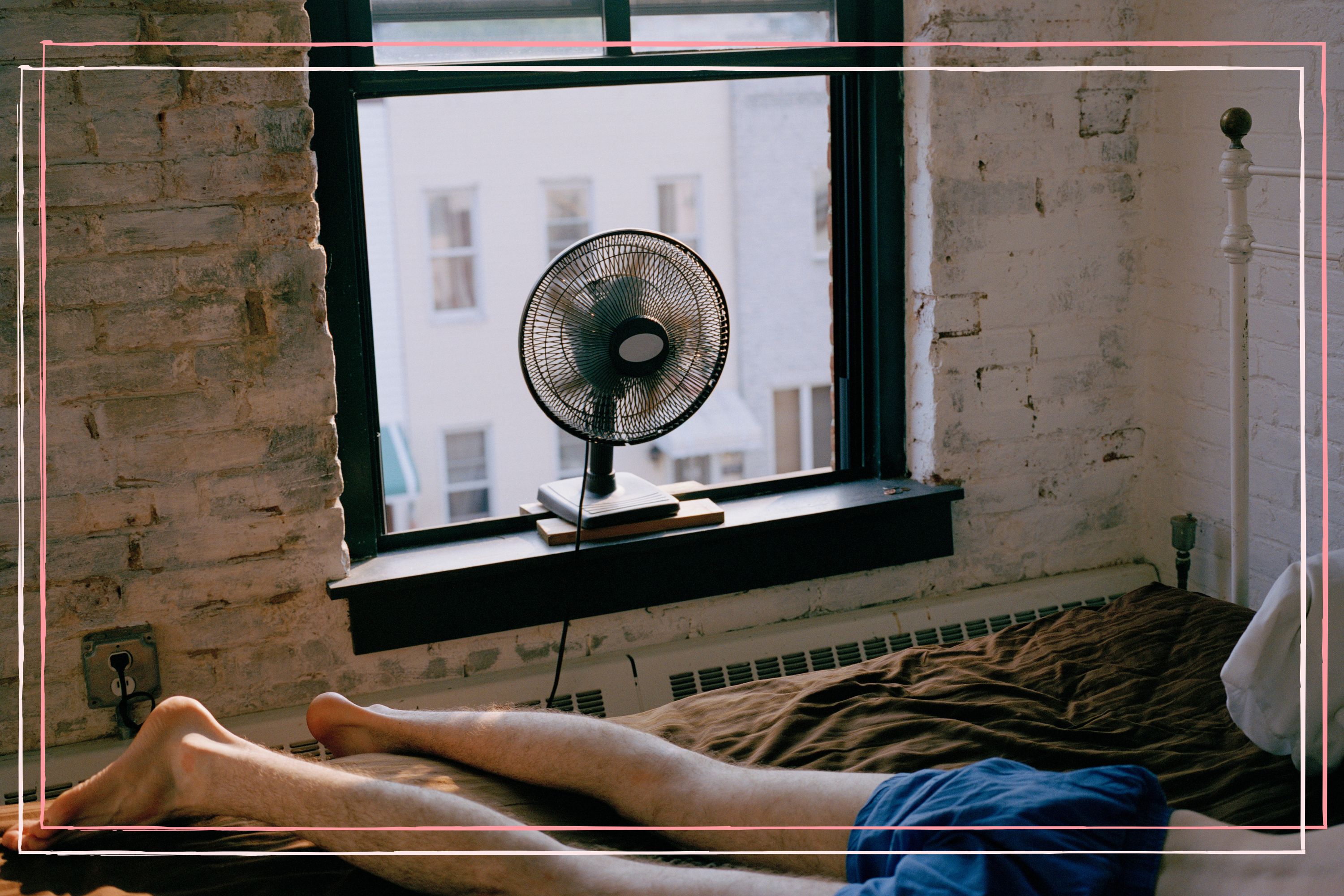 How to sleep in the heat: 25 expert tips for getting to sleep in a heatwave
How to sleep in the heat: 25 expert tips for getting to sleep in a heatwaveThese tips for how to sleep in the heat will help put an end to that unbearable tossing and turning on those sweltering summer nights.
By Anna Bailey Last updated
-
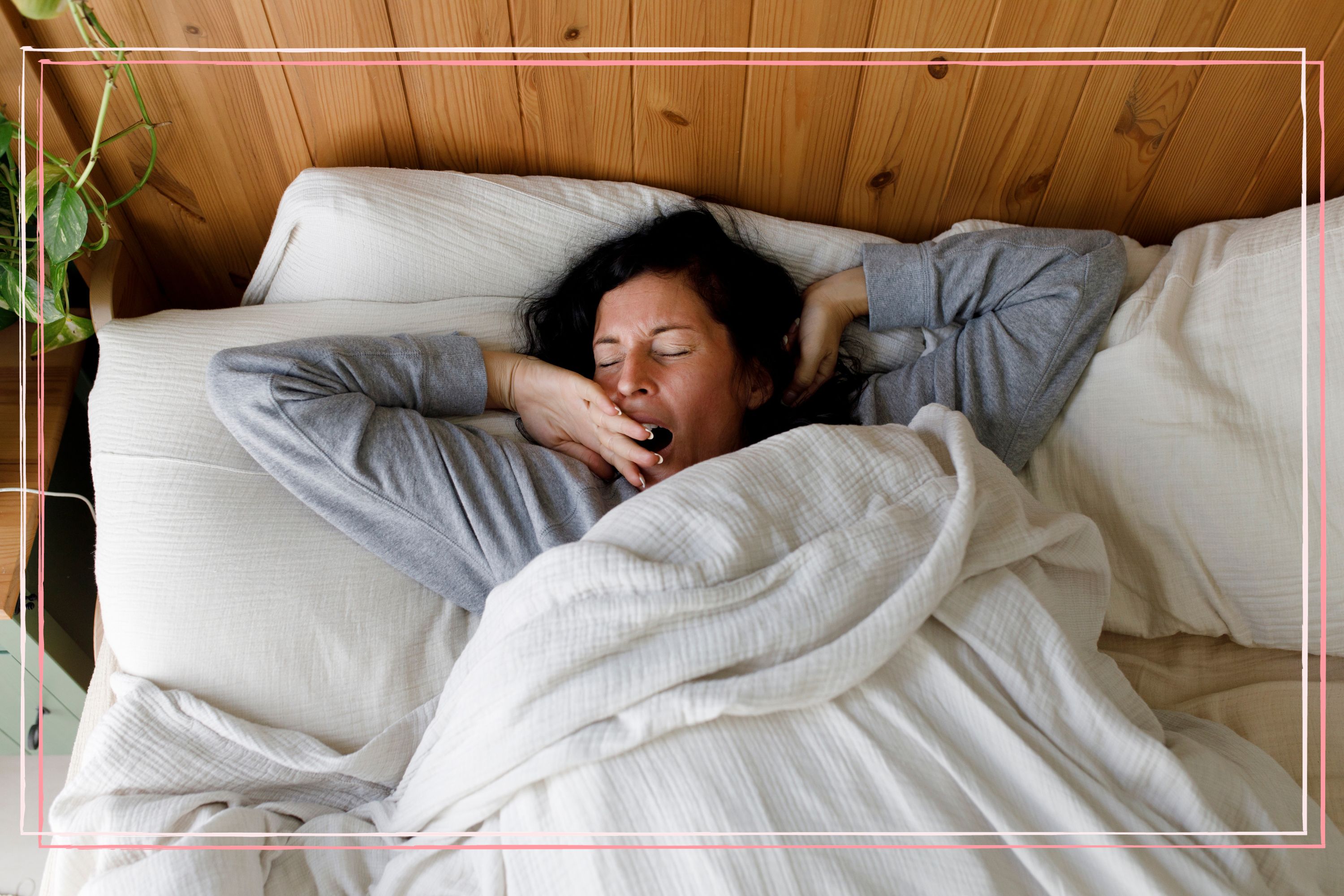 How to wake up in the morning: 11 expert-approved tips for sleep-deprived new mums
How to wake up in the morning: 11 expert-approved tips for sleep-deprived new mumsGetting a good night's sleep is sometimes easier said than done - especially when you're a new parent. Here's how to wake up with 11 easy tips.
By Ellie Hutchings Last updated